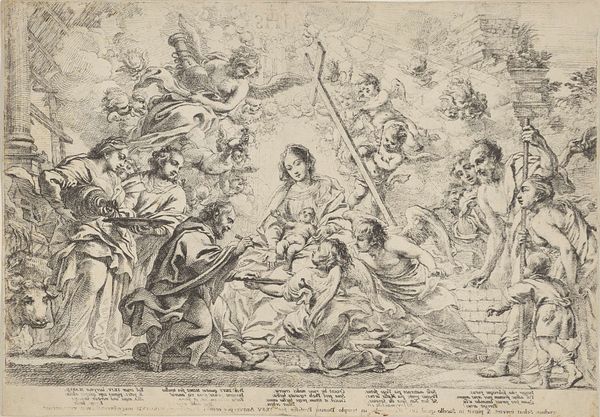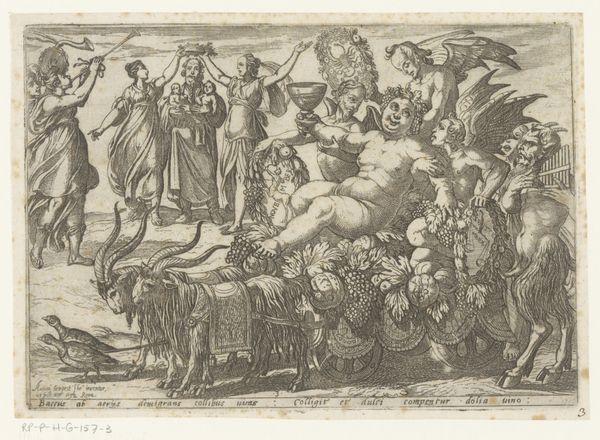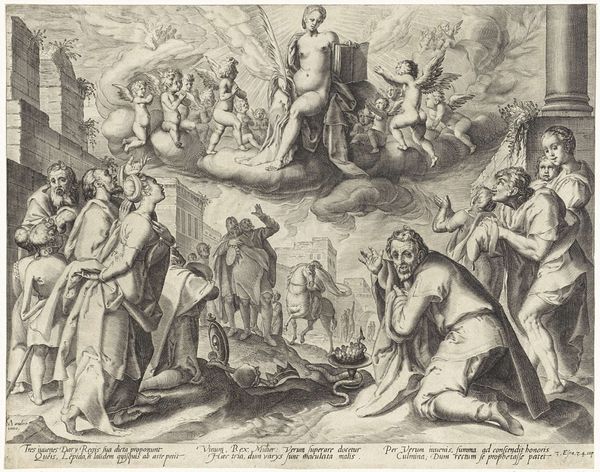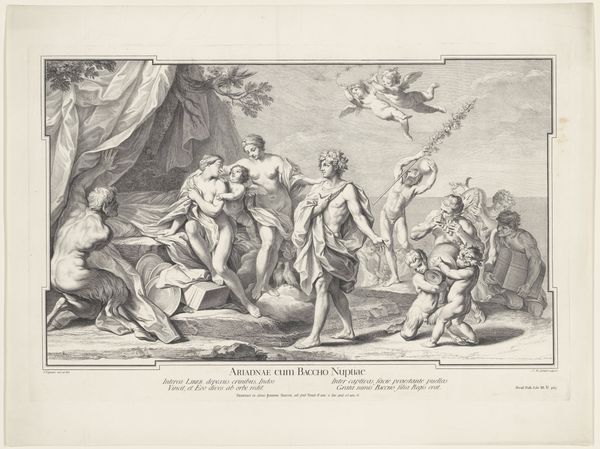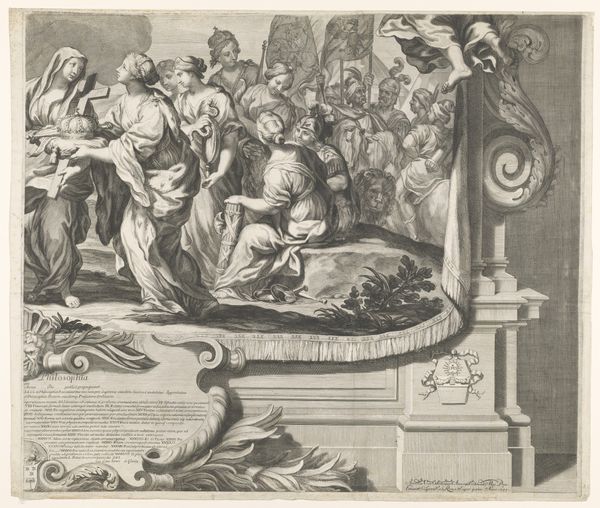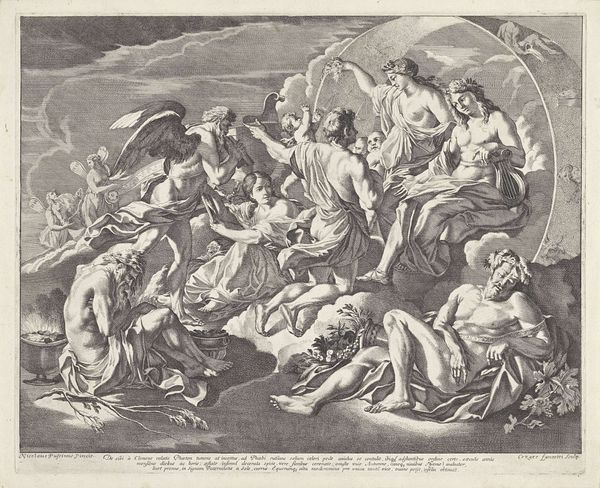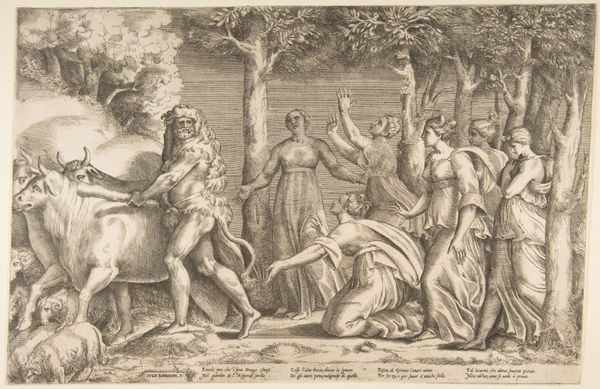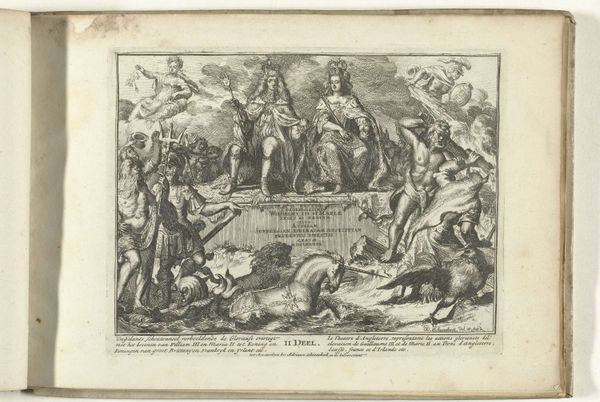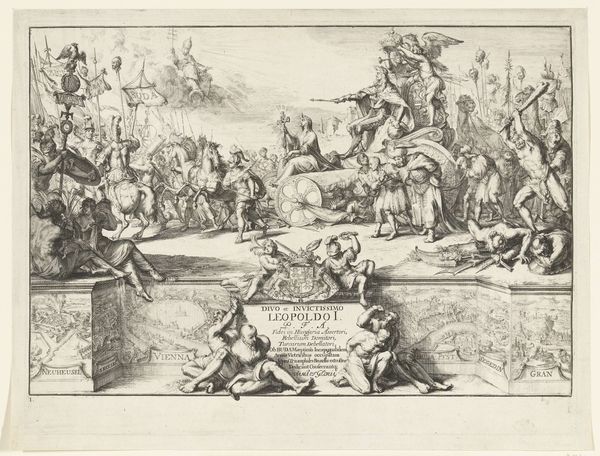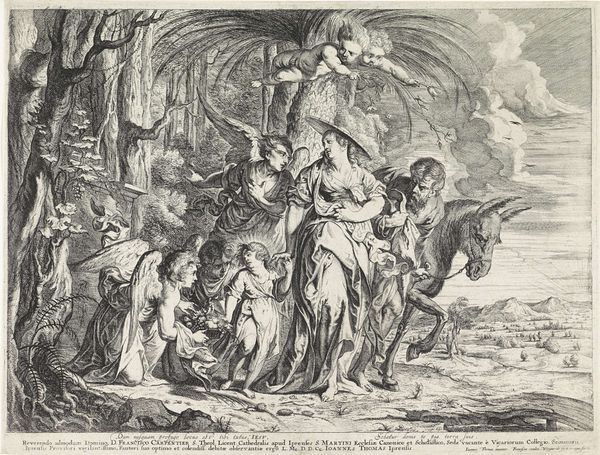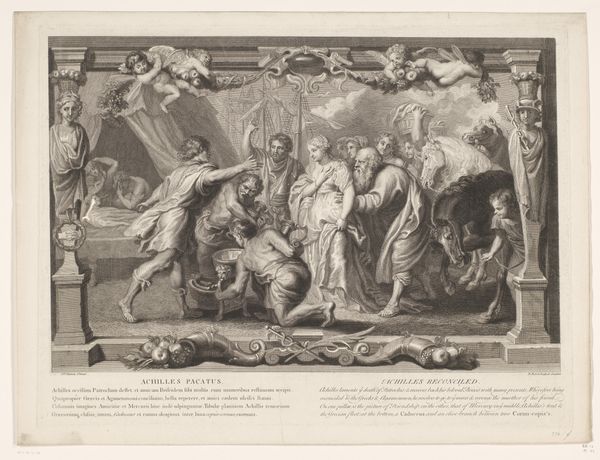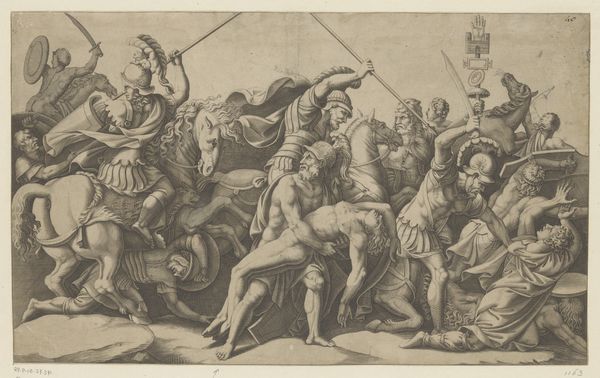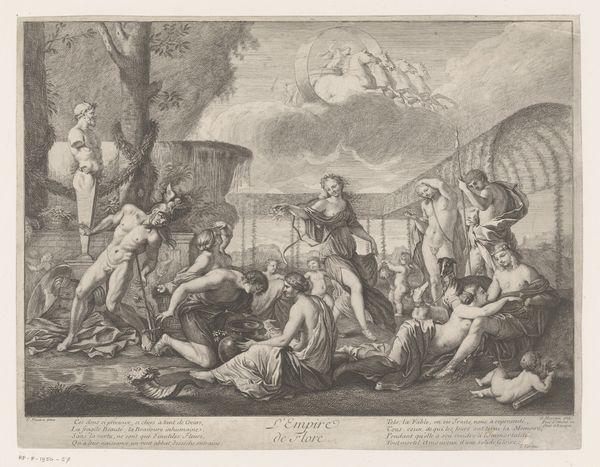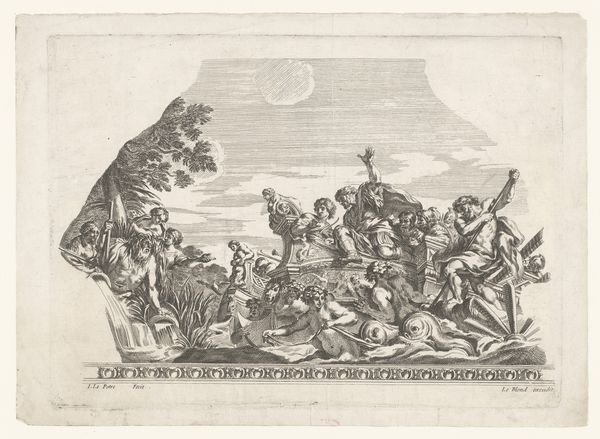
print, etching, engraving
#
narrative-art
#
dutch-golden-age
# print
#
etching
#
old engraving style
#
figuration
#
line
#
genre-painting
#
history-painting
#
engraving
Dimensions: height 270 mm, width 353 mm
Copyright: Rijks Museum: Open Domain
Editor: This is "The Struggle for the Trousers," an etching and engraving by Cornelis van Kittensteyn, dating sometime between 1610 and 1663. There's so much chaotic energy! What do you see in this piece? Curator: I see a potent visual commentary on gender roles and power dynamics within marriage. It depicts a literal tug-of-war, where women aggressively try to take the pants—symbolizing male authority—from their husbands. Given its historical context, what strikes you about this struggle being depicted so openly? Editor: I guess it's surprising. Were women really this outspoken then? Curator: Perhaps, but it’s important to consider how such a depiction might also function as a cautionary tale, reinforcing existing social hierarchies even as it appears to critique them. It prompts us to consider how art both reflects and shapes societal expectations. Editor: So, is it a celebration of female power or a warning against it? Curator: It's both. By illustrating women in a position of aggression against men, Kittensteyn invites his audience to consider how social order might be destabilized. It's important to understand the historical context—a time of strict social expectations, with specific roles assigned to each gender, to dissect that complexity. What does this dynamic mean to you as a student in the 21st Century? Editor: It makes me think about how far we've come, but also how these power struggles are still happening, maybe just in different ways. Thanks for your analysis, that gives me a lot to consider. Curator: Precisely! By situating this seemingly straightforward genre scene within its broader historical context, we gain insight not only into the past, but also into the ways persistent gender inequalities continue to manifest themselves today.
Comments
No comments
Be the first to comment and join the conversation on the ultimate creative platform.
